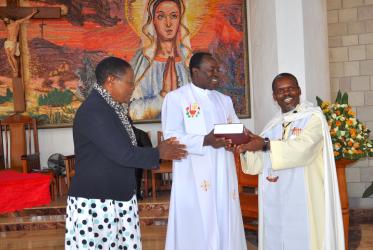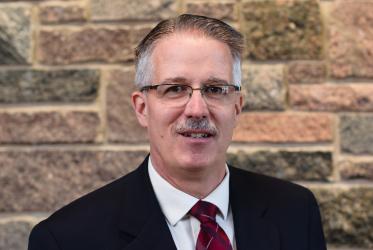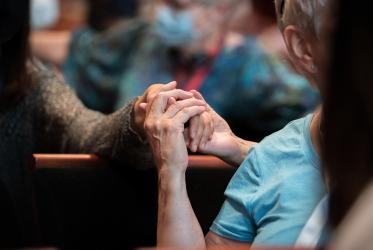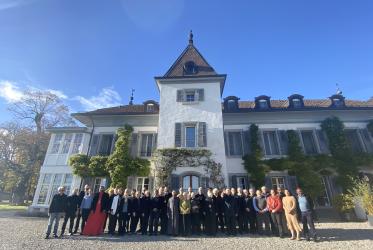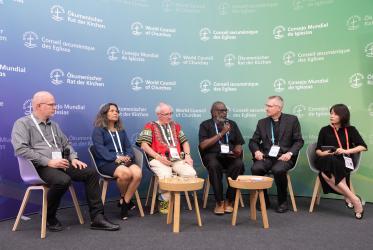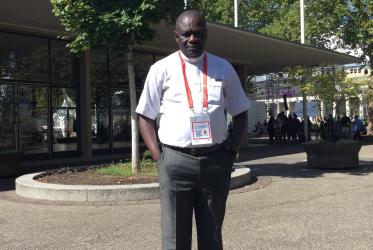Displaying 61 - 80 of 194
Pandemic and pedagogy: what are the valuable lessons?
21 December 2022
Towards a Global Vision of the Church Volume I
Explorations on Global Christianity and Ecclesiology, Faith and Order Paper 234
14 November 2022
Migrants in Argentina find listening ears and open hearts
04 November 2022
WCC 11th Assembly: safe and welcoming environment for all
19 September 2022
Assembly workshop looked toward ending AIDS epidemic by 2030
19 September 2022
Christ’s Love (Re)moves Borders – GETI 2022 in images
13 September 2022
Ukraine: Responding to humanitarian need
08 September 2022
Promoting human dignity through art
06 September 2022
Indigenous women struggle for identity in Asia and beyond
05 September 2022
Women with disabilities want to belong in churches
31 August 2022
